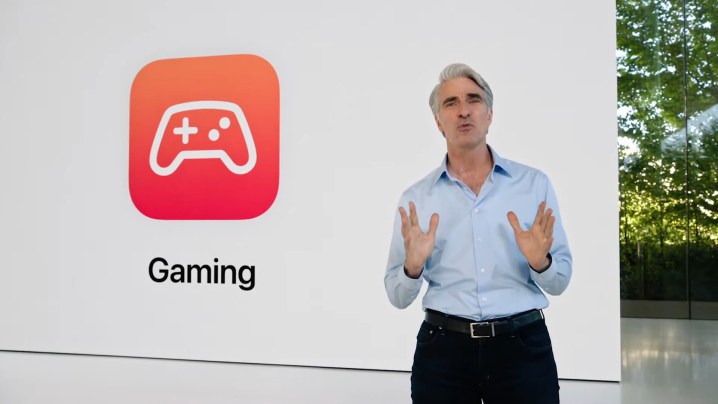When Apple announced it would revolutionize the world of Mac gaming at its Worldwide Developers Conference (WWDC) in June, many people were skeptical. But the latest update to the company’s Game Porting Toolkit has made some important changes to how games run on the Mac — and the results are impressive.
The toolkit allows developers to move their Windows games across to macOS Sonoma. Games makers can test out how well their products run on Apple’s hardware and find out what they need to do to make the jump, something that Apple says ends up “significantly reducing the total development time.”

According to YouTuber Andrew Tsai, the 1.02 version of the Game Porting Toolkit brings a whole host of improvements, from better frame rates and stability to restored features and greater compatibility with Windows games. In other words, it’s a sizeable step forward for Mac gamers and game developers alike.
Tsai tested a number of games and saw enhancements across the board. For instance, using an M2 Ultra chip, Cyberpunk 2077 averaged around 20 frames per second (fps) running at 1080p low settings. You may scoff at that, but it’s a drastic improvement over the puny 8 fps that resulted from the last version of the Game Porting Toolkit. And this is a game running through various translation layers instead of natively — that the toolkit more than doubled the game’s frame rate despite these restrictions is impressive.
Intriguingly, Tsai said the M1 Max chip hit around 36 fps with Cyberpunk 2077 running at 1440p medium settings. Why did the game get higher frame rates using a weaker chip and more demanding settings? That’s likely due to Apple silicon. The M2 Ultra features two Max-tier chips fused together, and it’s possible that the Game Porting Toolkit doesn’t fully support this yet due to its early development stage. Once Ultra chips are properly supported, the performance increase could be significant.
Better game compatibility

Elden Ring running at 1080p resolution, meanwhile, gained around 5 frame rates per second (fps), or about 20%. Tsai cautioned that while the uptick wasn’t huge, it was running through three translation layers (Windows to macOS, x86 to ARM64, and DirectX to Metal). If the game gets a native macOS release, its performance could be even better.
Aside from frame rate increases, the latest version of the toolkit has added compatibility for several popular games. Horizon Zero Dawn, for example, now runs properly (although there are some slight dialog glitches), while Resident Evil 2 (2019) and Devil May Cry 5 can be played without the crashes they previously experienced.
Finally, the toolkit’s 1.02 update has reintroduced support for 32-bit games, which was dropped in the preceding version.
Hope for the future

Although the toolkit is designed for developers, it can also be used by Mac gamers to play DirectX 12 games that previously would not have worked on Apple’s hardware without third-party porting software like CrossOver.
But before you get excited about using the Game Porting Toolkit to start playing games right away, it’s not very user-friendly for inexperienced coders. As Tsai demonstrates, it requires a whole heap of Terminal commands to get it updated and running.
Still, if you don’t mind a little coding, it could bring some tremendous improvements to your Mac gaming sessions. If developers decide to take advantage of it, there could be a bright future ahead for Mac gamers.
Editors’ Recommendations
